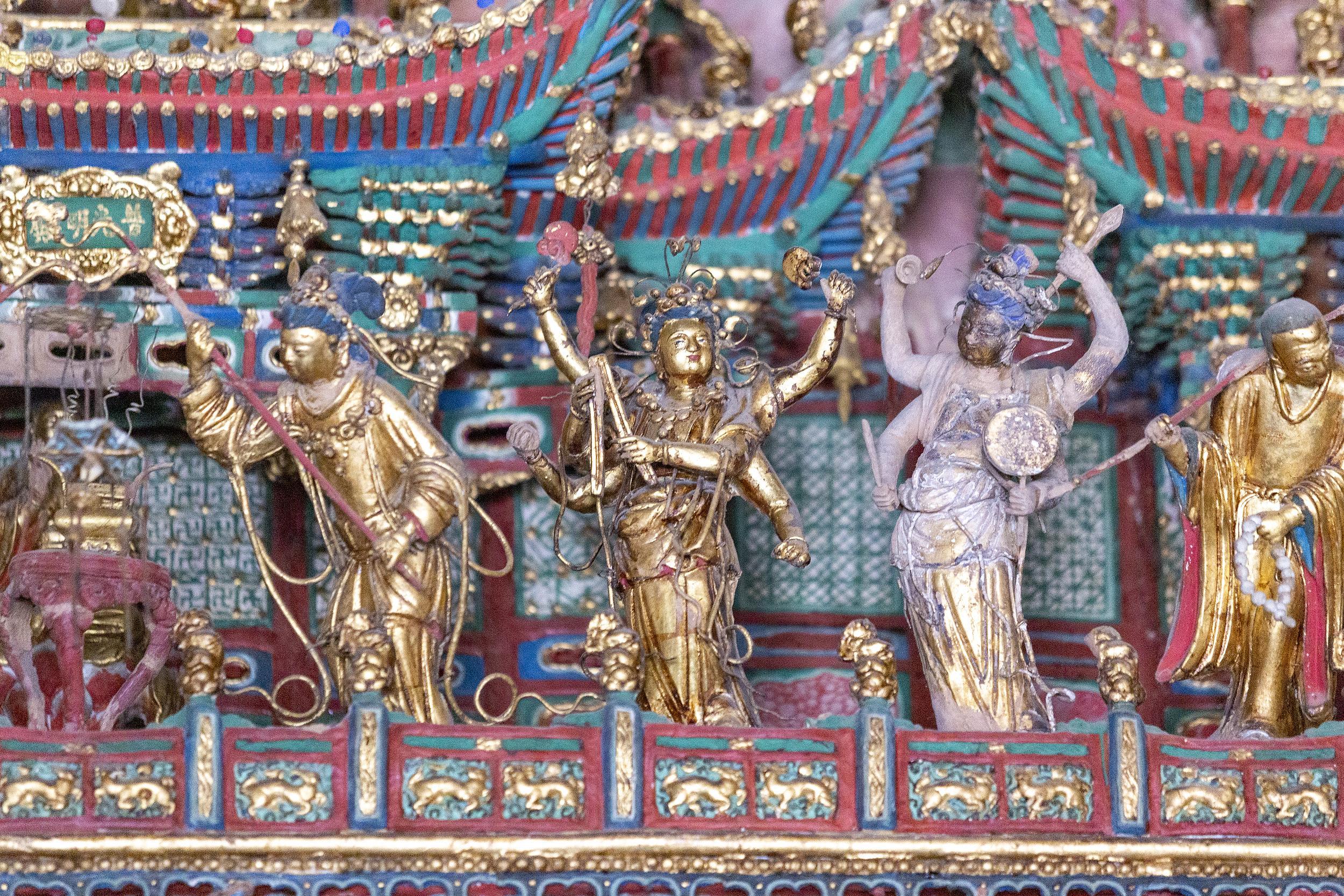Xiaoxitian Temple: A Trove of Chinese Suspended Sculpture

By Staff Reporters
In Chinese Buddhist statue art, suspended sculpture is a relatively uncommon form of art. Suspended sculptures are typically supported by walls or beams, with colorful sculptures hanging on fixed wooden frames.
By using a technique in which the sculptures are thicker at the top and thinner at the bottom, their three-dimensional effect is enhanced so that viewers can appreciate the vivid artistry from any angle. The various figures in different postures such as leaning, overlooking, jumping and flying, create a sense of realism.
The suspended sculptures at the Xiaoxitian Temple in Shanxi province in north China are a treasure trove of the art in terms of content, scale, and artistic merit.
Suspended sculptures are often richly colored for an enhanced visual effect. Gold foils are used extensively at the Xiaoxitian Temple, not only adding a sense of grandeur but also symbolizing the light of Buddhism.
In an area of under 170 square meters, there are 1,673 statues and intricate Buddhist scenes at the temple. The statues range in height from a towering 3.2 meters to as tiny as the little finger, depicting most of the major figures and scenes mentioned in Buddhist scriptures.
The figures and scenes are detailed, with every detail meticulously presented by skilled craftsmen, from the flowing folds of robes to the subtle facial expressions, all revealing an extraordinary aesthetic sense.
When illuminated, these suspended sculptures appear to be endowed with life, radiating a mysterious and solemn aura.







